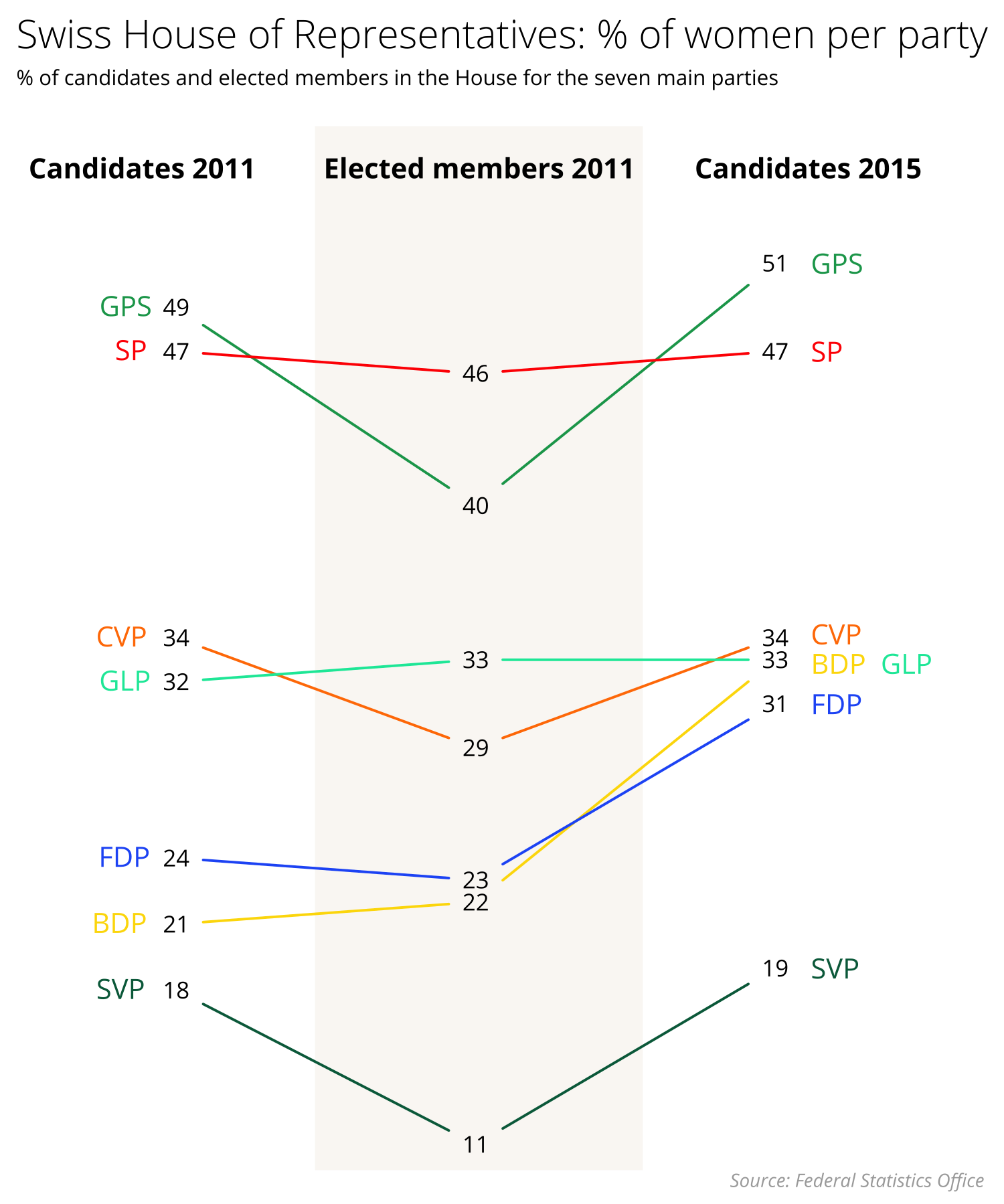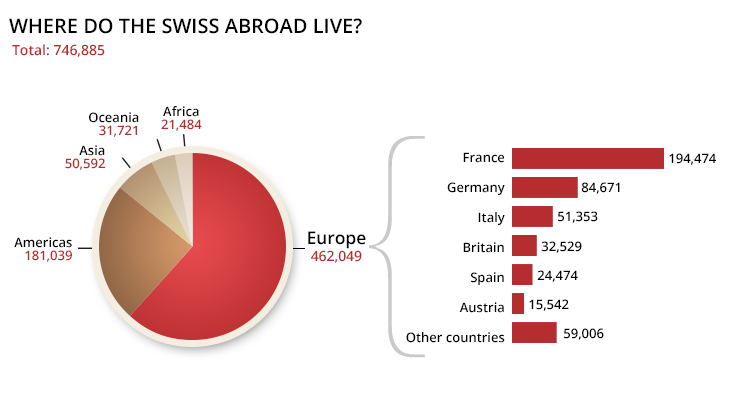
Hopefuls galore vie for parliament seats

A record number of candidates is hoping to win a seat in Switzerland’s parliamentary elections on October 18. There will be more women too, but the country still lags behind many others in this respect.
About 3,800 hopefuls are in the running for a seat in the House of Representatives, while another 160 are competing for a place in the Senate.
This is up 10% on the previous elections in 2011 and sets a new record in the history of modern day Switzerland, according to the Federal Chancellery.
The reasons for the steep rise are varied.
Experts point out that the electorate has grown in terms of quantity over the past four decades and with it the number of candidates. There are also more parties catering for different political opinions.
And increased competition among parties and the system of tactical alliances allows for additional electoral lists.
Switzerland has become more politicised and the rise of the conservative right Swiss People’s Party in the 1990s has led to more controversy, says political scientist Pascal Sciarini.
The Swiss parliament is made up of the 200-member House of Representatives and the Senate with 46 seats. As a rule, the house is elected under a system of proportional representation, taking into account the number of Swiss residents in each of the 26 cantons of the country. In the elections for the Senate, traditionally representing the interest of the cantons, different rules apply under the ‘first-past-the-post’ system.
The registered Swiss abroad have the right to vote, but there is no separate constituency.
Elections to the House of Representatives take place every four years in October.
“Campaigns have become more lively and competitive,” he says. He says an indication of this is the increase in voter turnout from 42.2% in 1995 to 48.5% in 2011, according to a study by the leading GfS Bern research and polling institute.
Women candidates
As shown in the above graphic, there are just over 1,300 women standing in the elections to the house. This is a record number for a country that only introduced women suffrage in 1971.
But with women representing only 34.5% of all candidatures, Switzerland is behind many other countries.
An international comparisonExternal link of the share of elected women parliamentarians shows Switzerland in 36th position.
Two organisations have made efforts to boost the share of women in the Swiss parliament.
Based on an elaborate selection system, the national umbrella group of women associations, Alliance F, has set up a special platform for the elections recommending female candidates based on their level of engagement for gender issues.
To this end, a government-advisory commissionExternal link has launched a campaign along with most major parties, except the Swiss People’s Party.
The commission says parties that have made an effort to promote women in parliament have done so successfully. As a rule it is the parties on the left that champion gender equality.

Expatriates
The number of Swiss expatriates running for seats peaked in the last elections four years ago when there were 75 hopefuls. That was compared to 44 in 2007 and only one in 1999.
This year 59 people are standing explicitly as members of the Swiss Abroad community.
However, no expat candidate has ever been elected to the house. Two parliamentarians in 2001 lived in France, before they stepped down ahead of the 2003 elections.
The data on expat candidates to a certain extent reflects the distribution of registered Swiss residents around the world. Most expats live in neighbouring European countries – with France and Germany top of the list.

Immigrant background
There are also a number of candidates vying for seats in the House of Representatives with an immigration background. They have Swiss nationality but their parents or grandparents settled in Switzerland.
Some parties have proudly highlighted their efforts to promote their candidates with foreign roots, attracting moderate interest from local media over the past weeks.
However, there are no reliable statistics readily available on the exact number of such candidates in the 26 cantons.
Overall, of the 200 outgoing members in the house, 174 are standing for another four-year term, while at least 11 of the 46 Senators are putting an end to their political careers in parliament.
This is the lowest resignation figure in 30 years, according to the Neue Zürcher Zeitung newspaper.
With input from Sonia Fenazzi and Daniele Mariani

In compliance with the JTI standards
More: SWI swissinfo.ch certified by the Journalism Trust Initiative
































You can find an overview of ongoing debates with our journalists here . Please join us!
If you want to start a conversation about a topic raised in this article or want to report factual errors, email us at english@swissinfo.ch.